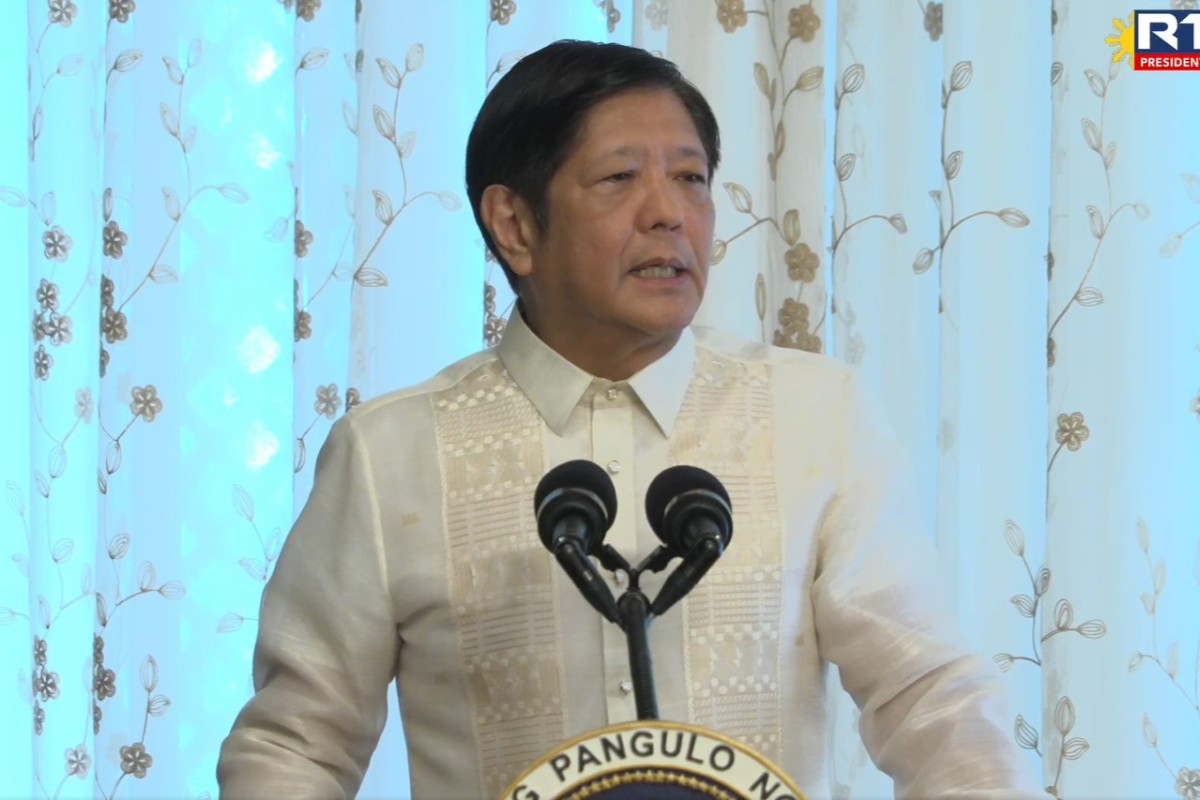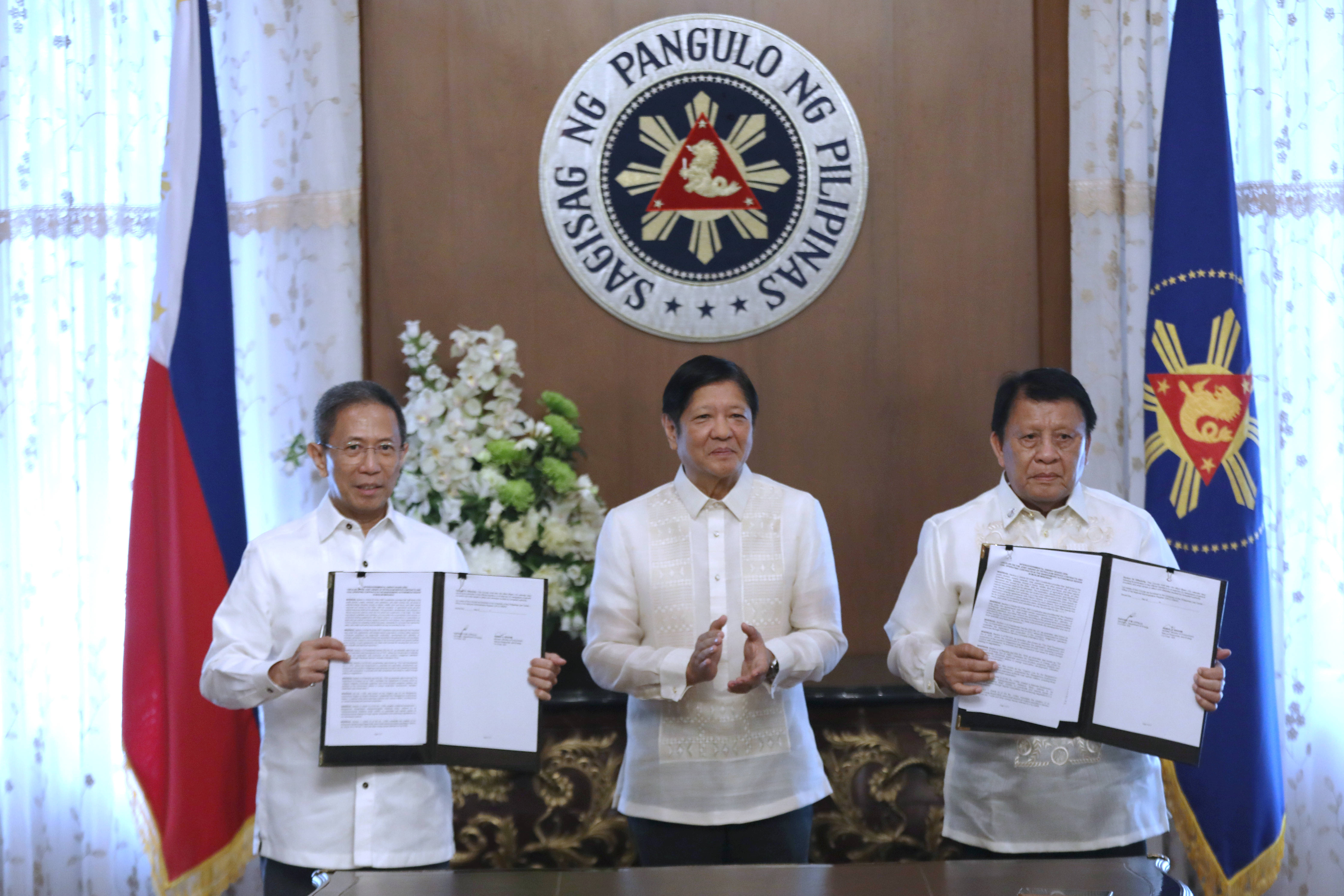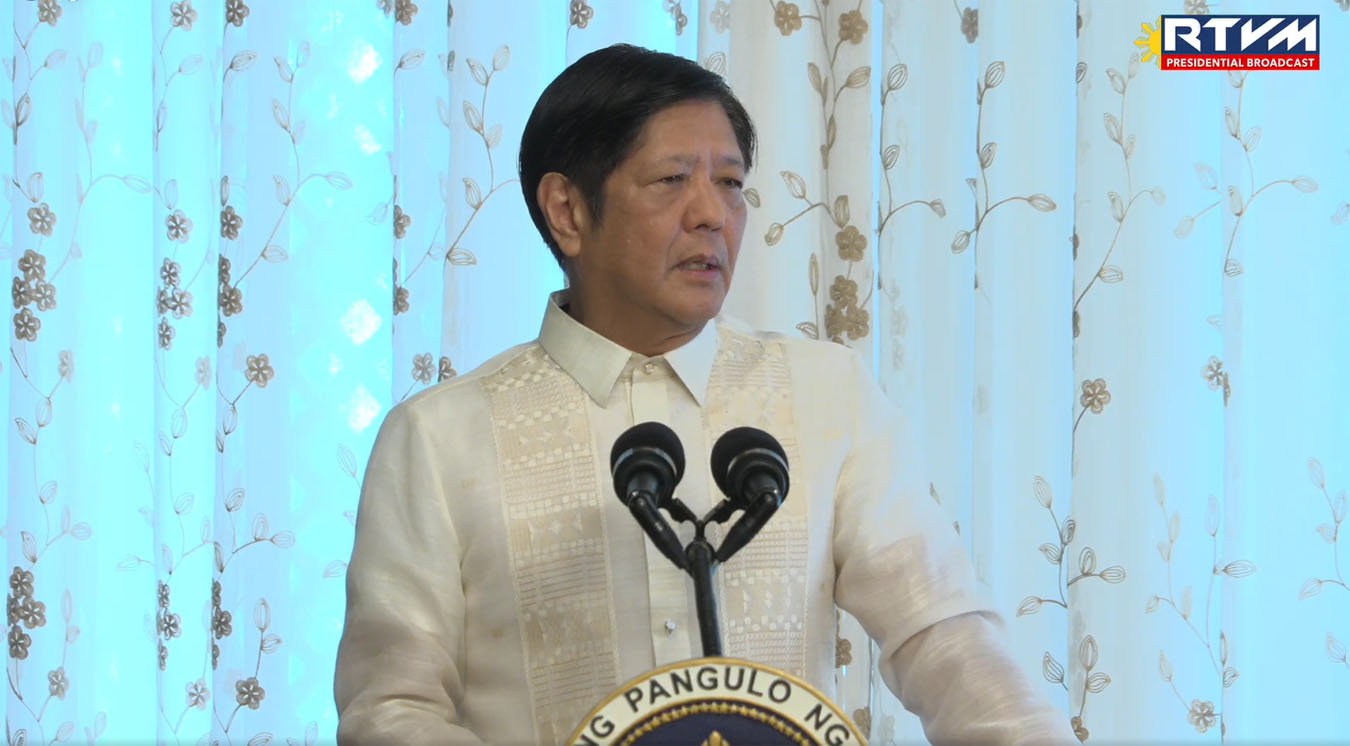MANILA -- The administration of President Ferdinand R. Marcos Jr. sees the signing of the Intergovernmental Energy Board Circular on the joint award of petroleum service and coal operating contracts in the Bangsamoro Autonomous Region in Muslim Mindanao (BARMM) will pave the way for the establishment of another energy resource center in the Philippines.
In his speech during the event at Malacanan Palace on Thursday, Energy Secretary Raphael Lotilla also noted that the signing of the energy contracts is another move towards development of Mindanao.
“This is an important step towards progress in Mindanao, and possibly the establishment of another energy resource center in the Philippines,” Lotilla said.
“I am optimistic that the strong collaborative relationship between the DOE (Department of Energy) and MENRE (Ministry of Environment, Natural Resources and Energy) will continue as we move forward with the implementation of this joint circular,” the DOE chief added.
Lotilla said the circular will empower the National and Bangsamoro agencies of government to jointly grant rights, and concessions for the development and utilization of indigenous and conventional energy sources within the jurisdiction of the Bangsamoro region.
“By clarifying the legal framework, the Circular allows the region to leverage its energy resources and attract investments,” he pointed out.
Lotilla also told President Marcos, who attended the event, that the next priority is the upgrading of electricity infrastructure and services in the BARMM provinces.
“We are confident that as you pursue your diplomatic initiatives in the energy capitals of the Middle East, the energy development needs of the BARMM will form part of your agenda. We commit ourselves to work towards the success of energy development in the BARMM, and in the rest of the Philippines under your leadership,” Lotilla said.
For his part, BARMM Chief Minister Ahod Ebrahim said the initiative shows the unwavering commitment of the Philippine government and the BARMM to work together to sustain the dividends of the peace process.
“This endeavor will indeed mark a new age of development for the Bangsamoro people at a time when we are sailing across the transition period,” Ebrahim said in his speech during the event.
“The signing of the important document on the energy sector that establishes the policies and guidelines for the joint exercise of the Bangsamoro Government and the National Government is another milestone, not only advancing energy security in the Bangsamoro but also having a positive effect on our growing economy,” he added.
Ebrahim thanked the chief executive for his support to the Bangsamoro people in realizing “our fullest potential and in the realization of our long-held determination to attain peace, secure development, and ensure progress in the Bangsamoro Autonomous Region.”
“As we witness the ceremonial signing of this circular, let us renew our commitment to continue building a cohesive, empowered, and progressive Bangsamoro Autonomous Region. One that is centered on moral governance. I am hopeful that after this, the concerned agencies will carry on fulfilling the deliverables of the board circular,” he said.
Ebrahim also thanked the members of the Technical Working Group on Upstream Conventional Energy Resource Development and the Intergovernmental Energy Board, led by Lotilla of the national government and Minister Akmad Brahim of the Bangsamoro government.
“Indeed, your service in materializing this blueprint in the energy sector is a very important step in transforming the lives of all Bangsamoro. As you are all aware, this undertaking is part of the 12-point priority agenda of the government of the day in ensuring that there is adequate, clean, environmentally friendly, and secured energy across the Bangsamoro,” Ebrahim said.
The Bangsamoro Organic Law empowers both the National and the Bangsamoro Government to jointly grant rights, privileges, and concessions for the exploration, development, and utilization of uranium and fossil fuels within the BARMM.
The Oil Exploration and Development Act allows the government to indirectly undertake the exploration and production of the country’s indigenous petroleum resources through Petroleum Service Contracts.
The Coal Development Act, on the other hand, also allows the government to undertake the exploration, development, and production of the country’s indigenous coal resources through Coal Operating Contracts. (PND)




